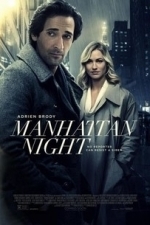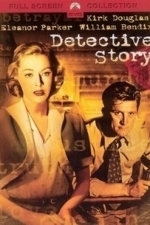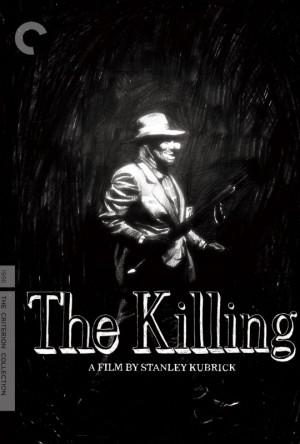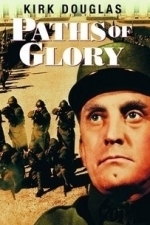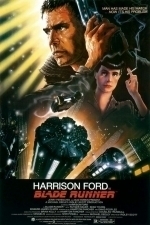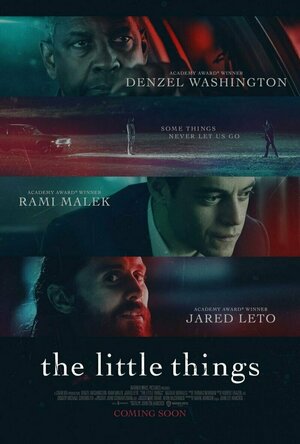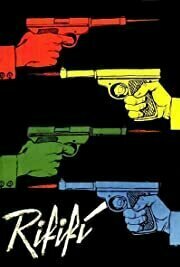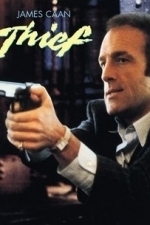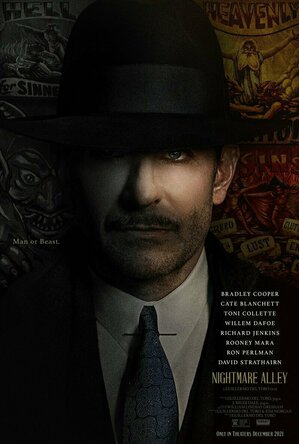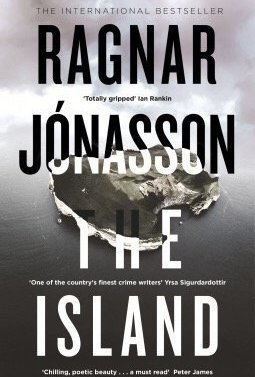Search
Search results
Darren (1599 KP) rated Manhattan Night (Manhattan Nocturne) (2016) in Movies
Nov 7, 2019
Characters – Porter Wren is a well-respected journalist in New York, he has a comfortable job in his paper because of his reputation for telling people’s stories. His latest case however will get him looking into the murder mystery that will push himself to the limits when he gets involved with the victim’s wife. He narrates a lot of this which is the films way of trying to have a dig a modern society. Caroline is the wife whose husband has been killed, she seduces Porter, which plays her out to be a siren, only she soon feels like a victim with this character get caught in the middle we never know which side she is meant to be, one that gets what she wants or just a victims. Simon is the husband that has been murdered meaning we only see him in flashback of how the two were married. Lisa is the wife of Porter, she is doctor and from how Porter tells the story they don’t get along as they once did.
Performances – Adrien Brody does well in the leading role in the film even if he doesn’t make his character feel much different than any others from the similar genre. Yvonne Strahovski fits the seductive side to her character, though without being the strongest in the serious side of the story. Campbell Scott and Jennifer Beals just don’t get enough time to show their skills off in this film.
Story – The story here follows an investigation into an unsolved murder which brings the investigative reporter into a series of cover ups and conspiracy in true noir style. Using the noir style is clear here, the execution of the noir style doesn’t quite come off though because the siren doesn’t feel like a siren and by the end you will be left wondering just why the investigation wasn’t solved by the police in the first place, let alone why the reporter is even asked to investigate it. Nothing really comes out of solving the case which is the biggest disappointment from everything we are getting invested in.
Crime/Mystery – The crime side of this mystery does involve a murder that hasn’t been solved, it does have other crime elements involved too which just confuse the simply plot.
Settings – The film is set in New York and uses a secret house to show a place of peace in this busy city and how people can meet and connect through life.
Scene of the Movie – The truth.
That Moment That Annoyed Me – The case felt pointless to solve.
Final Thoughts – This is a noir styled crime mystery that gives us a case that almost doesn’t need to be solved in the end.
Overall: Mystery that didn’t need solving.
Performances – Adrien Brody does well in the leading role in the film even if he doesn’t make his character feel much different than any others from the similar genre. Yvonne Strahovski fits the seductive side to her character, though without being the strongest in the serious side of the story. Campbell Scott and Jennifer Beals just don’t get enough time to show their skills off in this film.
Story – The story here follows an investigation into an unsolved murder which brings the investigative reporter into a series of cover ups and conspiracy in true noir style. Using the noir style is clear here, the execution of the noir style doesn’t quite come off though because the siren doesn’t feel like a siren and by the end you will be left wondering just why the investigation wasn’t solved by the police in the first place, let alone why the reporter is even asked to investigate it. Nothing really comes out of solving the case which is the biggest disappointment from everything we are getting invested in.
Crime/Mystery – The crime side of this mystery does involve a murder that hasn’t been solved, it does have other crime elements involved too which just confuse the simply plot.
Settings – The film is set in New York and uses a secret house to show a place of peace in this busy city and how people can meet and connect through life.
Scene of the Movie – The truth.
That Moment That Annoyed Me – The case felt pointless to solve.
Final Thoughts – This is a noir styled crime mystery that gives us a case that almost doesn’t need to be solved in the end.
Overall: Mystery that didn’t need solving.
Kirk Bage (1775 KP) rated Detective Story (1951) in Movies
Mar 3, 2020
Adapted from a stage play that he loved, Detective story typifies the kind of roles of a man under pressure that Douglas came to be indelibly identified with. This time it was his co-star Eleanor Parker who got the Academy Award nomination, but it was their chemistry that really drew the eye. The troubles of life, and the task of being a good man in the face of a bad world were the themes Douglas tackled here. The setting of crime fighting over one day in the 21st precinct is secondary to the personal fight of the “hard-nosed” Jim McLeod, who does his best but can never get ahead. There are shadows of such films as Miller’s Crossing, LA Confidential and even Blade Runner in here. Notable for some gorgeous film-noir photography, and the obligatory Douglas breakdown speech.
Pat Healy recommended The Killing (1956) in Movies (curated)
Pat Healy recommended Paths of Glory (1957) in Movies (curated)
Eduardo Sanchez recommended Blade Runner (1982) in Movies (curated)
JT (287 KP) rated The Little Things (2021) in Movies
Feb 6, 2021
The opening of The Little Things promises a lot but ultimately the tension that is driven during the first ten minutes is nowhere to be seen for the rest of the run time.
With three Oscar-winning actors and a genre that I absolutely love I couldn’t have been more excited, but that excitement started to take a nosedive when ‘The Little Things‘ started to get a ‘little dull’. Joe ‘Deke’ Deacon (Denzel Washington) is former Los Angeles cop turned local county sheriff, whose content with chasing small-time criminals. When he is asked to go back to the city to pick up some evidence for another case he crosses paths with Jim Baxter (Rami Malek) who is on the hunt for a sadistic serial killer.
Baxter realising that he is in the presence of greatness asks Deacon to accompany him to a crime scene, at which point Deke’s instincts point to someone potentially far more dangerous. Set in the 90s this is raw police work and the use of technology is limited, this is about assessing a crime scene in-depth, or in this case why the killer posed his victims in specific ways or returned to the crime scene later to move them.
Director John Lee Hancock wrote the script 30 years ago which is where it has remained until now. At one point Steven Spielberg and Clint Eastwood were rumoured to direct. The film bears resemblance to such thrillers as Se7en and Zodiac, however, The Little Things might be 30 years too late. The atmosphere and ambience is a neo-noir, at one point Deke is lying on a bed in a run-down motel room starring at polaroid photos of past victims on the wall. An obsession burning inside to catch the killer, which during flashbacks, he has encountered before.
And then there is Albert Sparma (Jared Leto) the prime suspect, or is he? Such is the film’s ambiguity that the third act will leave you scratching your head, trying to piece the evidence together yourself in a bid to catch the killer. Sparma has all the tendencies of a serial killer, he certainly has the look and demeanour. But he may also be a self-obsessed crime buff, with a morbid fascination for death and crime scenes.
All three actors give a solid account of themselves, with Leto making the biggest impression. He’s creepy in a way that will get under your skin. The film is bursting with ideas and places to ramp up the tension but it falls short which is such a shame. As someone who is very fond of a good psychological thriller, this was definitely a missed opportunity.
With three Oscar-winning actors and a genre that I absolutely love I couldn’t have been more excited, but that excitement started to take a nosedive when ‘The Little Things‘ started to get a ‘little dull’. Joe ‘Deke’ Deacon (Denzel Washington) is former Los Angeles cop turned local county sheriff, whose content with chasing small-time criminals. When he is asked to go back to the city to pick up some evidence for another case he crosses paths with Jim Baxter (Rami Malek) who is on the hunt for a sadistic serial killer.
Baxter realising that he is in the presence of greatness asks Deacon to accompany him to a crime scene, at which point Deke’s instincts point to someone potentially far more dangerous. Set in the 90s this is raw police work and the use of technology is limited, this is about assessing a crime scene in-depth, or in this case why the killer posed his victims in specific ways or returned to the crime scene later to move them.
Director John Lee Hancock wrote the script 30 years ago which is where it has remained until now. At one point Steven Spielberg and Clint Eastwood were rumoured to direct. The film bears resemblance to such thrillers as Se7en and Zodiac, however, The Little Things might be 30 years too late. The atmosphere and ambience is a neo-noir, at one point Deke is lying on a bed in a run-down motel room starring at polaroid photos of past victims on the wall. An obsession burning inside to catch the killer, which during flashbacks, he has encountered before.
And then there is Albert Sparma (Jared Leto) the prime suspect, or is he? Such is the film’s ambiguity that the third act will leave you scratching your head, trying to piece the evidence together yourself in a bid to catch the killer. Sparma has all the tendencies of a serial killer, he certainly has the look and demeanour. But he may also be a self-obsessed crime buff, with a morbid fascination for death and crime scenes.
All three actors give a solid account of themselves, with Leto making the biggest impression. He’s creepy in a way that will get under your skin. The film is bursting with ideas and places to ramp up the tension but it falls short which is such a shame. As someone who is very fond of a good psychological thriller, this was definitely a missed opportunity.
Olivier Assayas recommended Rififi (1955) in Movies (curated)
Olivier Assayas recommended Thief (1981) in Movies (curated)
BankofMarquis (1832 KP) rated Nightmare Alley (2021) in Movies
Feb 4, 2022
Sum Does Not Add Up To The Total Of The Parts
If you ever want to understand the meaning of the term “the sum does not equal the total of the parts”, you need to look no further than the latest film from Guillermo Del Toro, the neo-noir thriller, NIGHTMARE ALLEY.
This film looked like it had all the right elements for a fantastic, adult film. A neo-noir thriller with a distinctive period look, helmed by a first rate director and featuring an A-List cast that are (for the most part) perfectly cast in their roles.
So why doesn’t this film rise above ordinary?
Ultimately, it is because this type of film, a neo-noir crime thriller where none of the characters are likeable or are easy to root for, is a tricky tightrope walk and, in this instance, Director del Toro opted to play it safe, focusing on mood and atmosphere, while strapping his talented cast with characters (and, ultimately, performances) that are middle-of-the road.
Bradley Cooper is the right performer in today’s world to play Stanton Carlisle, the drifter that becomes a carney that becomes a a con-man “Mentalist” who is drawn into a sinister plot by the mysterious Dr. Lilith Ritter (Cate Blanchett - also the right performer in today’s world to play this part). These 2 have decent (but not great) chemistry with each other, for you know (they way del Toro has Directed Blanchett’s performance) that she is up to something, thus keeping us at arm’s length.
But I am getting ahead of myself, for that is the 2nd half of this film, I haven’t even touched on the first half - which is part of the issue here as well.
The first hour of this 2 1/2 hour film is all set up as we follow Cooper’s character as he is introduced into a Circus sideshow of the 1940’s - and all of the characters therein. This is an interesting - if kind of slow - setup as we are treated to some interesting character building performances by some pretty terrific actors - Toni Colette, Ron Perlman, David Strathairn and, of course, the always good Willem DaFoe.
Oh, and I haven’t even mentioned Rooney Mara who is sort of the “through-line” between the 2 halves of this film, but her character is so vanilla, that one forgets her character event exists.
But…after an hour of setting up this world and these characters - the film pivots away from this area and goes to a whole different world…and a different plot. It is like a SuperHero Origin film where the first 1/2 of the film is the Origin and the 2nd half is the first adventure of said SuperHero.
And this just doesn’t work all that well in this film (even with a callback at the end), it is jarring and creates 2 different movies, neither of which rises above the average.
I lay the blame for all of this on Director Guillermo del Toro who appeared to be more interested in the look of this film (and the look is AMAZING) and just let the actors act, but not get in the way. The direction is bland, the performances are bland and the plot just doesn’t hold together.
Which is very disappointing, considering what “could have been”.
Letter Grade: B
7 stars out of 10 and you can take that to the Bank(ofMarquis)
This film looked like it had all the right elements for a fantastic, adult film. A neo-noir thriller with a distinctive period look, helmed by a first rate director and featuring an A-List cast that are (for the most part) perfectly cast in their roles.
So why doesn’t this film rise above ordinary?
Ultimately, it is because this type of film, a neo-noir crime thriller where none of the characters are likeable or are easy to root for, is a tricky tightrope walk and, in this instance, Director del Toro opted to play it safe, focusing on mood and atmosphere, while strapping his talented cast with characters (and, ultimately, performances) that are middle-of-the road.
Bradley Cooper is the right performer in today’s world to play Stanton Carlisle, the drifter that becomes a carney that becomes a a con-man “Mentalist” who is drawn into a sinister plot by the mysterious Dr. Lilith Ritter (Cate Blanchett - also the right performer in today’s world to play this part). These 2 have decent (but not great) chemistry with each other, for you know (they way del Toro has Directed Blanchett’s performance) that she is up to something, thus keeping us at arm’s length.
But I am getting ahead of myself, for that is the 2nd half of this film, I haven’t even touched on the first half - which is part of the issue here as well.
The first hour of this 2 1/2 hour film is all set up as we follow Cooper’s character as he is introduced into a Circus sideshow of the 1940’s - and all of the characters therein. This is an interesting - if kind of slow - setup as we are treated to some interesting character building performances by some pretty terrific actors - Toni Colette, Ron Perlman, David Strathairn and, of course, the always good Willem DaFoe.
Oh, and I haven’t even mentioned Rooney Mara who is sort of the “through-line” between the 2 halves of this film, but her character is so vanilla, that one forgets her character event exists.
But…after an hour of setting up this world and these characters - the film pivots away from this area and goes to a whole different world…and a different plot. It is like a SuperHero Origin film where the first 1/2 of the film is the Origin and the 2nd half is the first adventure of said SuperHero.
And this just doesn’t work all that well in this film (even with a callback at the end), it is jarring and creates 2 different movies, neither of which rises above the average.
I lay the blame for all of this on Director Guillermo del Toro who appeared to be more interested in the look of this film (and the look is AMAZING) and just let the actors act, but not get in the way. The direction is bland, the performances are bland and the plot just doesn’t hold together.
Which is very disappointing, considering what “could have been”.
Letter Grade: B
7 stars out of 10 and you can take that to the Bank(ofMarquis)
Sassy Brit (97 KP) rated The Island (Hidden Iceland #2) in Books
Jun 5, 2019
After reading the previous Detective Inspector Hulda Hermannsdóttir story (The Darkness) of which I really enjoyed, I was pleased to be offered this book to review by Penguin UK (Michael Joseph) via NetGalley. Here’s my review:
In The Island Ragnar brings back CID member Hulda of the Reykjavik police with another case to solve. One surrounding four young adults who have decided to take a weekend away in a remote and deserted part of of Elliðaey island off the Icelandic coast. Strange because they’d not seen each other for ten years, and even stranger still, one is married with kids and it’s odd that she’d just go on a mini-break with old school friends she’d not seen for years when they hadn’t really kept in contact all that time. Stranger still, once they meet up again, there’s a fatal accident and when they wake up one morning a girl’s missing. She’s only gone and fallen off a cliff and killed herself.
Or was she pushed? *Strokes chin in a very Sherlock way*
What is the connection between these four people? And why did they decide to meet up after ten years? I don’t know about you, but I was dying to find out! Okay, maybe not dying, I don’t want the author to put me in one of his stories only to kill me off – but I was keen!
My thoughts? Ragnar has written an intriguing and clever plot where two stories (past and present) fold into one. Running along beside Hulda’s crime solving antics, there’s a chance to discover more about her private life, her dark past, and her wish to find her own father of whom she’s never known.
I thoroughly enjoyed solving this crime with Hulda. I found the bittersweet ending (of which more than one character received) was brilliantly crafted. How an author writes a book with so much detail, I’ll never know but Jónasson is very good at it!
Nordic fiction can be as bleak as the setting, but that’s the beauty of these unforgiving scenes! I love how the isolated island, along with the terrain and the weather, helps to weave suspense and atmosphere into the story, just as much as the characters involved. What an entertaining, and cleverly crafted Nordic Noir! Looking forward to reading The Mist the third of Jónasson’s Hidden Iceland series. It can’t come fast enough!
In The Island Ragnar brings back CID member Hulda of the Reykjavik police with another case to solve. One surrounding four young adults who have decided to take a weekend away in a remote and deserted part of of Elliðaey island off the Icelandic coast. Strange because they’d not seen each other for ten years, and even stranger still, one is married with kids and it’s odd that she’d just go on a mini-break with old school friends she’d not seen for years when they hadn’t really kept in contact all that time. Stranger still, once they meet up again, there’s a fatal accident and when they wake up one morning a girl’s missing. She’s only gone and fallen off a cliff and killed herself.
Or was she pushed? *Strokes chin in a very Sherlock way*
What is the connection between these four people? And why did they decide to meet up after ten years? I don’t know about you, but I was dying to find out! Okay, maybe not dying, I don’t want the author to put me in one of his stories only to kill me off – but I was keen!
My thoughts? Ragnar has written an intriguing and clever plot where two stories (past and present) fold into one. Running along beside Hulda’s crime solving antics, there’s a chance to discover more about her private life, her dark past, and her wish to find her own father of whom she’s never known.
I thoroughly enjoyed solving this crime with Hulda. I found the bittersweet ending (of which more than one character received) was brilliantly crafted. How an author writes a book with so much detail, I’ll never know but Jónasson is very good at it!
Nordic fiction can be as bleak as the setting, but that’s the beauty of these unforgiving scenes! I love how the isolated island, along with the terrain and the weather, helps to weave suspense and atmosphere into the story, just as much as the characters involved. What an entertaining, and cleverly crafted Nordic Noir! Looking forward to reading The Mist the third of Jónasson’s Hidden Iceland series. It can’t come fast enough!
